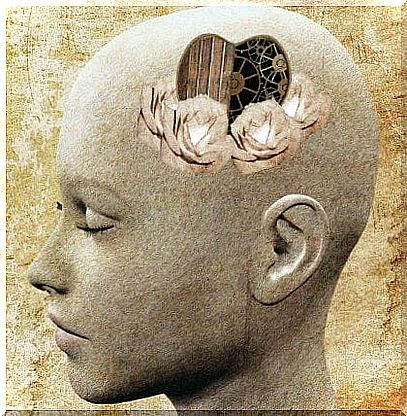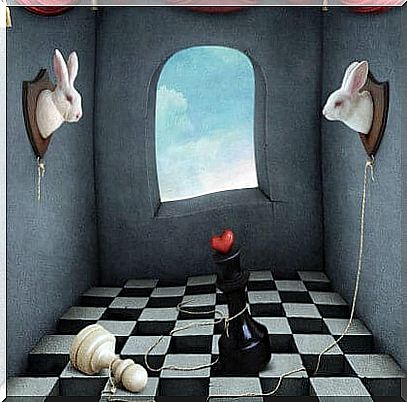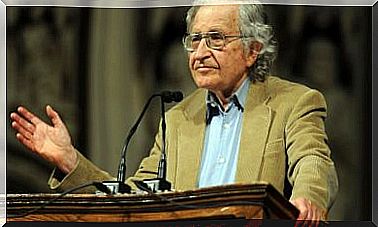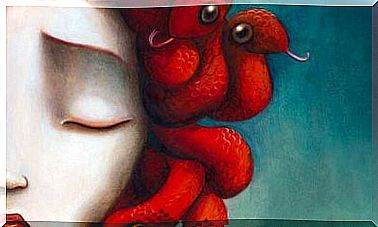5 Symptoms Of Emotional Intoxication

I feel vulnerable, I get bored easily, and every now and then I feel the need to run away and leave everything behind. I stop being interested and I’m indifferent in a split second, I get excited about finishing a project, but the next moment I get bored.
I live on a constant roller coaster, laughter and crying accompany me and destabilize me in the most unexpected moments. I have to make a great effort to separate my present and past concerns. Insecurity reigns in my life.
I often react disproportionately and can’t express my thoughts and emotions clearly, which is getting me into a lot of trouble. Besides, I don’t feel comfortable with anything or anyone, it’s like I’m suffocating, because I feel a deep need to have someone to give me a hand…
Can you identify someone or yourself in the words above? This could well be the speech of a person under the effects of emotional intoxication. Many of us understand what the effects of alcohol intoxication are; it is visible how perceptions change, that the capacity for reaction deteriorates, that the heart pulse decreases…
But are we able to interpret emotional intoxication?
If you are experiencing, or have experienced, emotionally charged moments, you are likely to be intoxicated. The causes are diverse since we are emotional beings in our entirety, but in any case, emotional intoxication is the consequence of not taking time daily to cultivate our interior.
1- Your perceptions change
You will be looking at the world through the lens of emotions, you will not care about reasons and will not listen to you or others. Doing so can seem like a waste of time, even if there’s nothing further from reality.
This can generate nervousness and impatience in the face of unexpected emotional reactions that are beyond our control, as we don’t know how to handle what comes next.

2- Your insecurities surface
Your insecurities surface and control your life. You have become more reactive and often become defensive. Your self-esteem is completely weakened and you feel vulnerable in any event.
Your strengths are failing and your emotions are preventing you from seeing clearly what value you have and what you are capable of doing. This fosters the development of emotional dependency, to the point where you believe you can’t do anything on your own.

3- Emotional blockage prevents progress
Giving free pass to our emotional reactions without submitting them to a mental filter limits our ability to communicate and advance. It is common for us to find ourselves in situations in which we do not know how to act, as a result of our intoxication.
Let’s say that being emotionally intoxicated keeps you from thinking before you speak and having a perspective on what happens.
“You should always have a cool head, a warm heart and let go , ” said Confucius. A “hot” reaction causes our emotions to control us and our impulses to explode, as we will not be the same if we act now.

4- Emotional vertigo prevents letting go of what is bad for you
I would define the fear of “letting go” as emotional vertigo ; this is nothing more than fear in its purest state, fear of facing the emptiness generated by loss. It is the fear of mourning the loss of our love for sacrifice, and our weakness for masochism.
You feel irritable if you step out of the pre-set script for your life, and you feel that if you go astray, you will cause a sacrifice that will completely unbalance your existence. You don’t feel able to get on with your life if you let go of these habits or people who stay with you, but you still know that something about them isn’t right.

5- Mental laziness rules your life and your capacity for effort
It is likely that if you are intoxicated, you will feel that you are not listening to what others say and that not only your attention, but also your memory, are overly selective.
This is aggravated if you find yourself at the crossroads of an argument, as you will begin to twist the words you hear and draw your own conclusions according to your frustrations and problems.
It’s not that you don’t want to do something properly, it’s just a tremendous mental effort to have different perspectives on any issue and to be on top of everything. It’s not that you don’t have the energy to face everyday challenges, it’s that you don’t feel you have the strength to do it.

How to act in the face of emotional intoxication?
We need to understand that when we are under the influence of our emotions and insecurities, we deteriorate enormously. We are not interpreting things accurately and are very likely to say or do things that we may regret later on.
Faced with these problems, the important thing is that we are aware that we are full of emotions and that we must take time to analyze and accept them.
If we learn to identify these five symptoms quickly, we will become aware of our “intoxicated” state, allowing us to withdraw in time; this withdrawal will turn out to be incredibly advantageous in our vital balance.
Main Image Credits: Little









